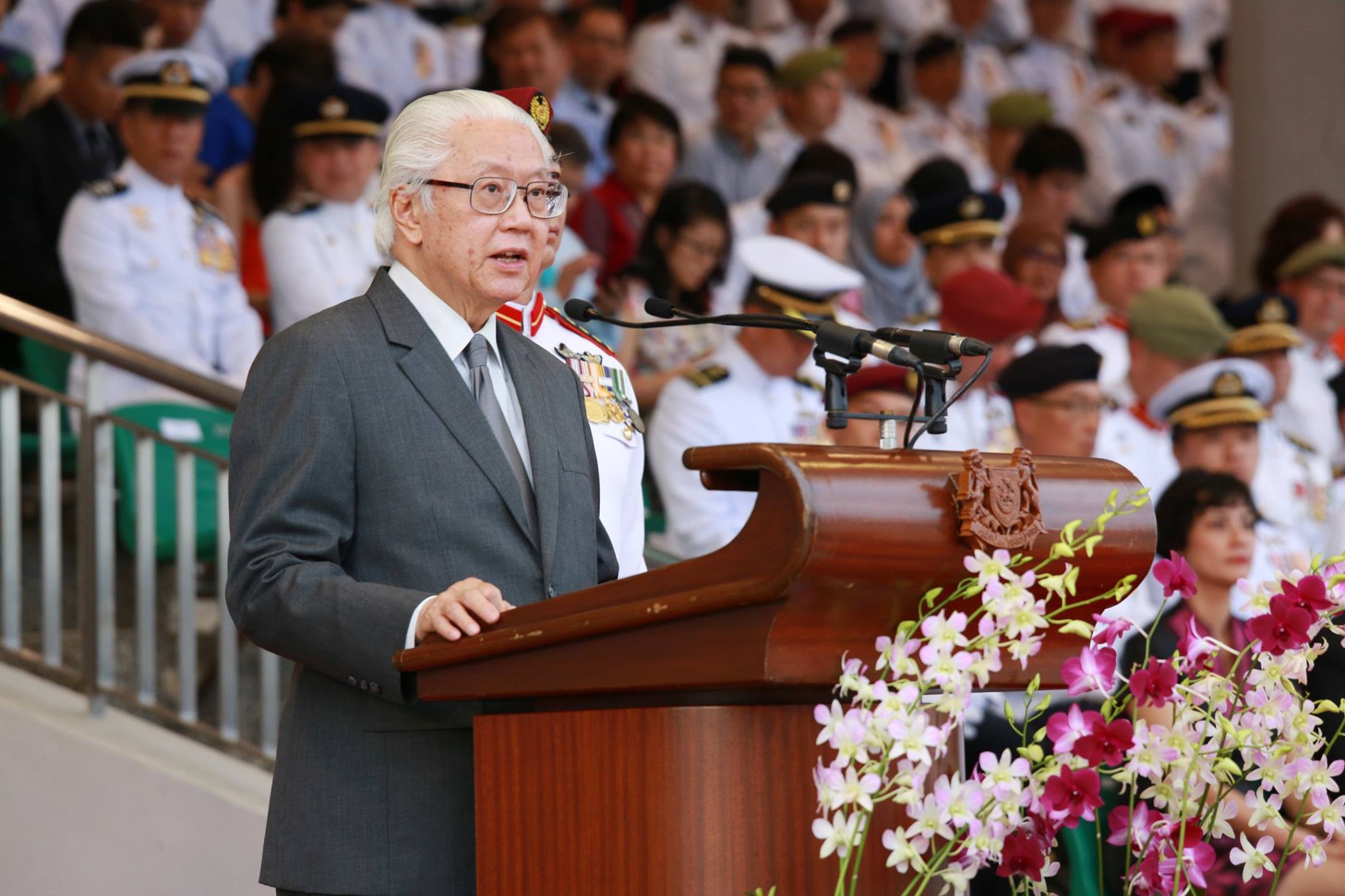So after President Tony Tan's address at the opening of the 13th Parliament on January 15, everyone's been talking about the elected presidency (EP).
In case you missed it (and chances are you did), here's the line that got them all excited:
"The government will study this matter carefully, to assess whether the political system can be improved to ensure clean, effective, and accountable government over the long term."
The EP flame was ignited by a Straits Times commentary from Lee Kuan Yew School Dean Kishore Mahbubani, who decided to spend his weekend writing a commentary about "policy failures" and "sacred cows".
His Monday commentary subsequently got public intellectuals talking at the Institute of Policy Studies' annual flagship conference -- Singapore Perspectives.
And because we think the well-connected Kishore and the pro-establishment Straits Times know more than we do, every political commentator worth his or her salt started adding spice to the EP conversation.
While observing all this chatter, we noticed a rather ironic thing:
If you are a (Singapore-style) conservative, you are likely to advocate changes (or tweaks) to the EP, or the abolishing/replacement of the EP system.
If you are a (Singapore-style) liberal, you will argue in favour of the status quo.
Since we know many of you are busy with your daily lives, we have helpfully compiled the various arguments advocating for and against changes to the EP.
THE YES CAMP
1. Kishore Mahbubani: "Let's talk about policy failures and the elected presidency", The Straits Times
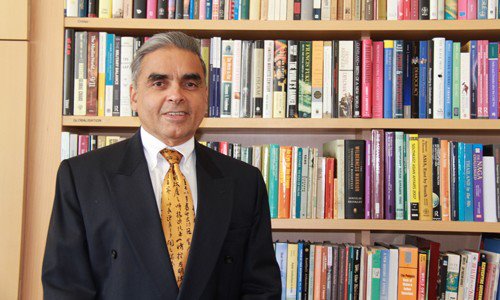 Dean of the LKY School of Public Policy, National University of Singapore
Dean of the LKY School of Public Policy, National University of Singapore
His main argument: What if a rogue President is elected? Let Parliament elect the President instead.
Other points:
i) Saboed Mentioned other public intellectuals -- Chief of Government Communications Janadas Devan and potential presidential candidate Ho Kwon Ping -- by highlighting that he was not the first to suggest that elected presidency should be revisited. Janadas and Ho, after all, did point out that the 2011 Presidential Election was "divisive and highly politicised".
ii) If Parliament can choose a President, it can pick a candidate on the basis of merit or even race (Aren't these two classifications contradictory?).
2. Calvin Cheng, "Changes to the Political System - Presidential Address", Facebook Post
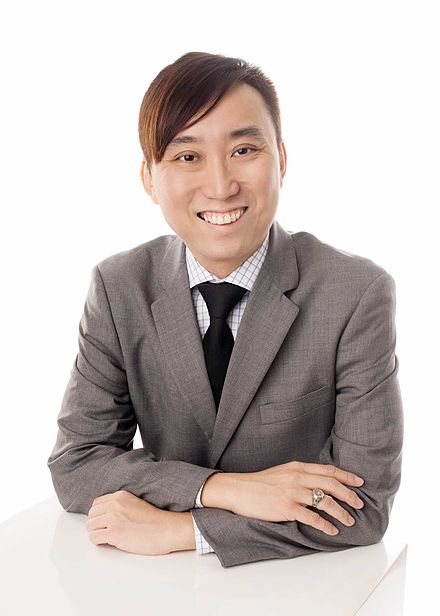 Former Nominated Member of Parliament Source: Wikipedia
Former Nominated Member of Parliament Source: Wikipedia
His main argument: Elected presidency "has become a proxy for partisan politics".
Other points: Either scrap it, or raise the bar at the very least, to prevent what he deems to be "unqualified populists" from degrading the office.
THE SITTING ON THE FENCE CAMP
4. Gillian Koh, "Refreshing" Singapore's Political System, IPS Commons
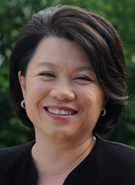 Deputy Director at the Institute of Policy Studies (IPS).
Deputy Director at the Institute of Policy Studies (IPS).
Her main argument: The President's address on improving Singapore's political system is "intriguing" as it leads Singaporeans to wonder if there is going to be a review of the "young institution".
Other points:
i) Some parts of the EP are yet to be entrenched in the Constitution, as the government views the EP as an evolving institution in need of further refinements.
ii) With more contenders for the EP, the size of the mandate for the eventual winner will be small. This then brings into question the "political mandate" of an elected president, as opposed to that received by the Prime Minister or MPs.
5. Bertha Henson, "Elected Presidency: Sacred cow or sacrificial lamb?", The Middle Ground
 Former Straits Times editor Source
Former Straits Times editor Source
Her main argument: Anyone proposing changes to the elected presidency is in other words saying people are too dumb to vote wisely for the right man. But it is imperative that the people are consulted on any changes, because they aren't as stupid as these folks might think.
Other points:
i) A politicised presidency? But the EP has always been a partisan affair. Another fear is that there could emerge two power centres or rallying points in the country which are not aligned with each other.
ii) The EP backfired on the PAP, because the electorate viewed it differently from what the PAP had in mind when it was first conceptualised, as well as what has been stated in the Constitution.
iii) If Singaporeans never quite understood the concept of having an EP with limited executive powers, the government should explain this better and consult the public if changes are to be made.
THE NO CAMP
6. Kirsten Han, "What's wrong with electorate choosing the President?", Yahoo News
 Freelance journalist Source
Freelance journalist Source
Her main argument: Fear of the electorate’s choice is not a good enough reason to abolish the EP. Time for the establishment to respect the will of the electorate.
Other points:
i) Commentaries about the presidential election yielding the wrong result suggests that the public might fail to elect the preferred “right” candidate of the establishment.
ii) While presidential elections are often politicised, politicisation is not always a bad thing.
iii) More political education is needed to ensure that voters understand the role and importance of the presidency.
7. Eugene Tan, "No U-turn needed on the elected presidency", The Straits Times
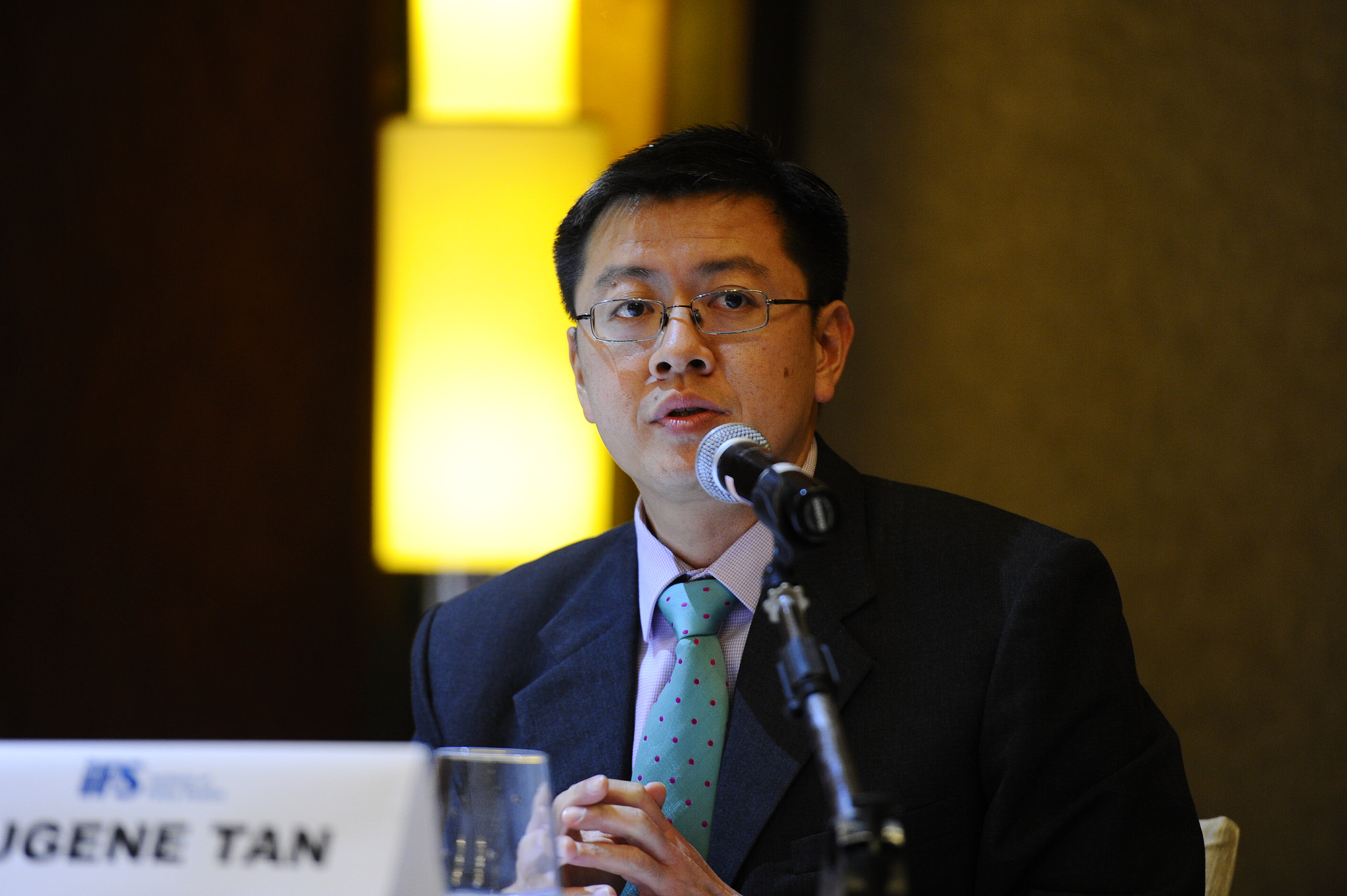 Associate law professor at the Singapore Management University School of Law and former NMP. Photo courtesy of IPS
Associate law professor at the Singapore Management University School of Law and former NMP. Photo courtesy of IPS
His main argument: Abolishing the elected presidency would undercut the raison d'etre of the President. Making changes based on concerns from the 2011 PE would be unduly reactionary. But the government should educate voters on the true role and powers of the President.
Other points:
i) In the context of Singapore's one-party dominant political system, this need for ample and robust checks and balances cannot be taken lightly. The elected presidency is one feature.
ii) The nub of the issue is whether there is a better mode of selecting the President -- whether a competitive election is suitable for electing a head of state who is constitutionally required to be non-partisan and apolitical.
iii) Abolishing the elected presidency would undercut the president's political and moral authority to stand up to the elected government. A president elected by a People's Action Party-dominated Parliament may not have the same standing or legitimacy.
iv) What is needed is a comprehensive public education to explain the role and powers of the elected president to Singaporeans.
Top photo from Dr Tony Tan Facebook.
If you like what you read, follow us on Facebook and Twitter to get the latest updates.
If you like what you read, follow us on Facebook, Instagram, Twitter and Telegram to get the latest updates.
